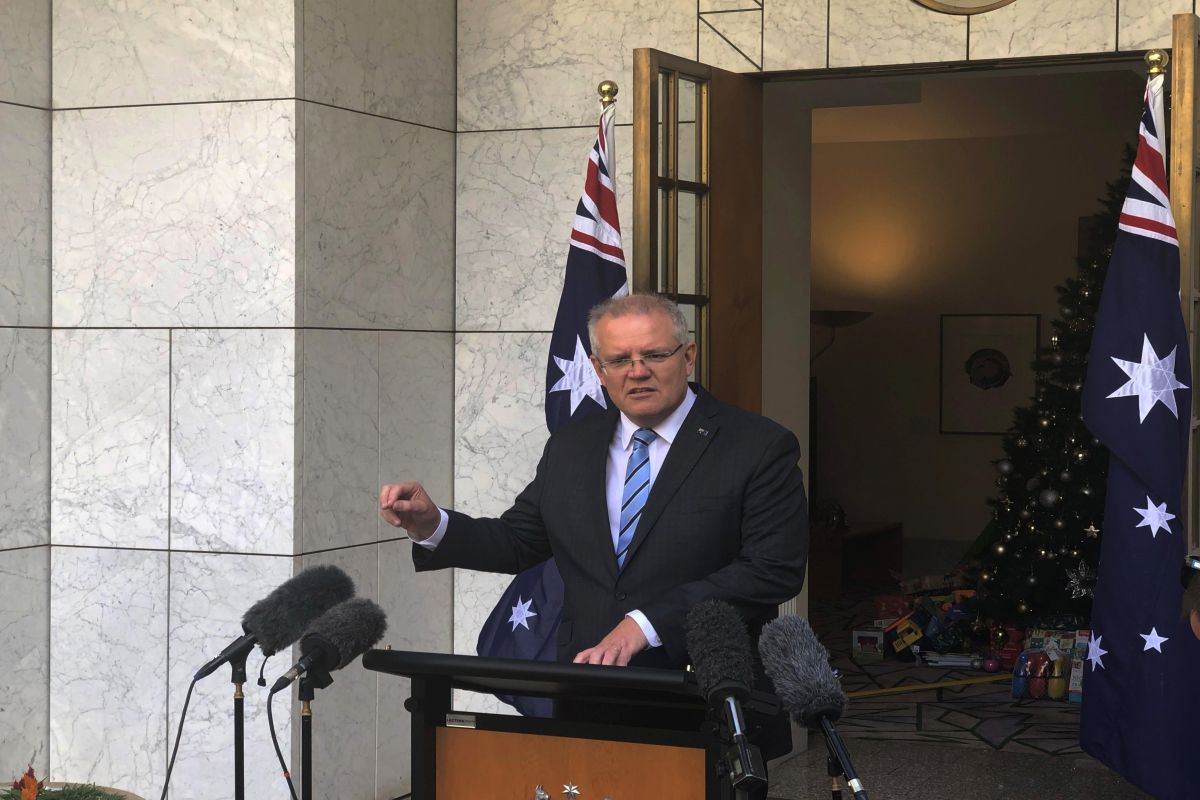Australian Prime Minister Scott Morrison on Sunday acknowledged that his government had made mistakes in handling the destructive bushfires sweeping the country and for which he has received heavy criticism.
“There are things I could have handled on the ground much better,” Efe news quoted Morrison as saying in an interview on the state broadcaster ABC,
Advertisement
An investigation would be launched into the fire response, he added.
His apology comes after thousands of people demonstrated in several cities on Friday to call for his resignation, besides demanding more measures from the government against climate change and the ongoing fires that have already left 28 dead and thousands of houses charred.
On January 9, authorities issued new warnings and evacuation notices across the country’s heavily populated southeast.
The national weather agency confirmed fears there was no sign of that happening in the next few months as it released its annual report, which also showed that 2019 was Australia’s hottest and driest year on record.
Earlier, PM Scott Morrison said, “This is taking a very heavy toll,” adding to it that more than 1,500 homes lost to fires across the country since September.
Morrison also cancelled his official trip to India that was planned for this month in order to deal with a bushfire crisis ravaging parts of his country.
About 4,000 people in the town of Mallacoota in Victoria headed to the waterfront after the main road was cut off.
The New South Wales (NSW) state had declared a state of emergency, with bushfire conditions expected to worsen over the coming days as a record-breaking heatwave sweeps across the country.
After several days high temperatures, cooler weather been forecast for the coming week, which could give a much-needed respite and an opportunity for firefighters to contain the blazes in different parts of the country.
Australia is the world’s largest exporter of coal and Morrison, before becoming the prime minister, gave a speech in parliament with a piece of coal in his hand to defend mining companies against appeals to reduce production.











